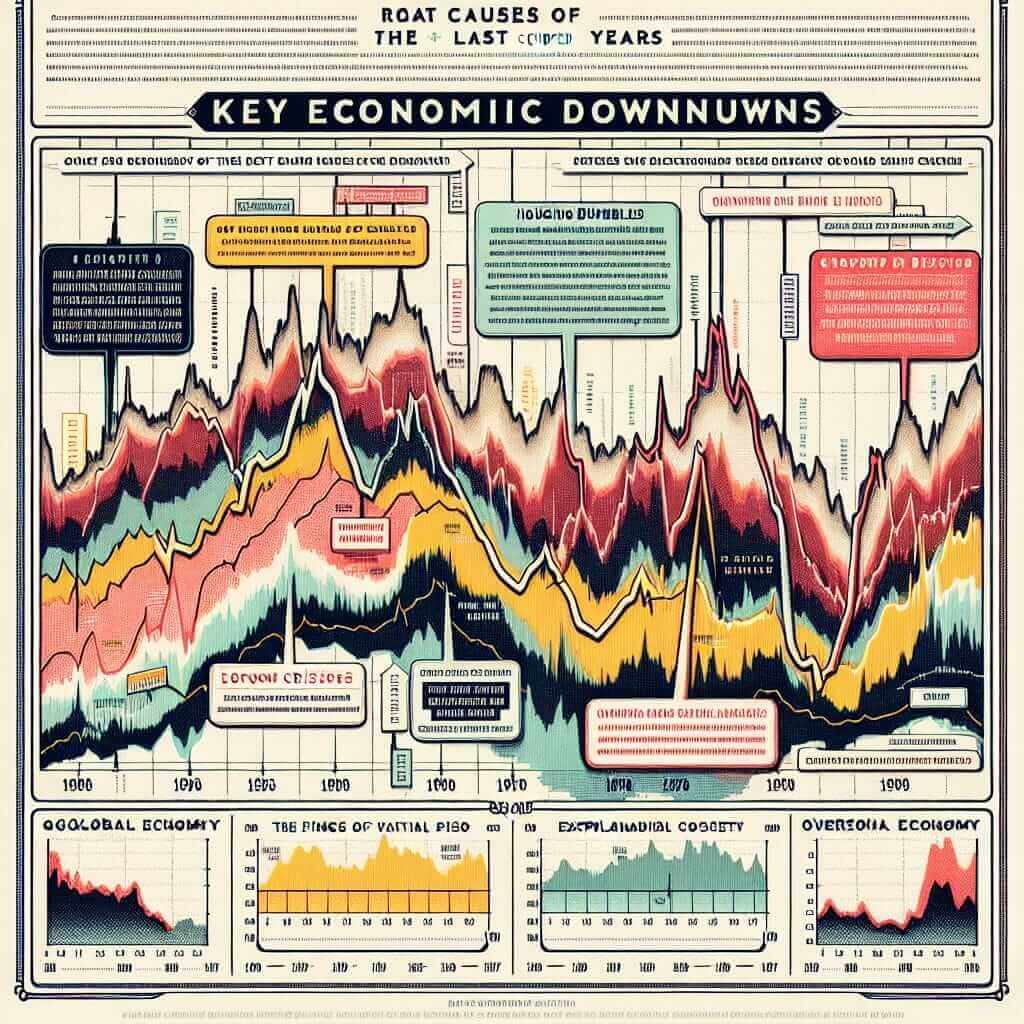The IELTS Reading test presents a range of topics, from scientific discoveries to historical events. One recurrent theme is the study of economic crises throughout history. This article provides you with a comprehensive practice test on the “Historical analysis of global economic crises,” a topic rich in information and crucial for understanding economic patterns. This topic has appeared frequently in past IELTS exams due to its relevance and complexity.
With a surge in economic events affecting global stability, it’s likely that similar topics will continue to appear in future IELTS exams. Engaging in this practice test will help you become familiar with such content and enhance your reading skills.
Practice Test on “Historical Analysis of Global Economic Crises”
Reading Passage
Historical Analysis of Global Economic Crises
Economic crises have been a recurring phenomenon throughout history, each having significant impacts on societies worldwide. These crises are often precipitated by a variety of factors, including speculative bubbles, banking collapses, and policy missteps. This reading passage will explore several notable economic crises, their causes, and their consequences.
The Great Depression
The Great Depression of the 1930s is perhaps the most significant economic downturn in modern history. It began with the stock market crash of 1929 and was exacerbated by bank failures, reduction in consumer spending, and poor government response measures. Worldwide, the Great Depression resulted in mass unemployment, deflation, and unprecedented economic contraction. The social implications were equally severe, with widespread poverty and social unrest.
The 2008 Financial Crisis
Another pivotal crisis was the 2008 financial meltdown, initiated by the bursting of the housing bubble in the United States. This crisis was marked by the drastic decline in housing prices, leading to a series of mortgage defaults and the collapse of major financial institutions. It prompted a global recession that saw the downfall of several economies, necessitating government bailouts and the implementation of stringent financial regulations to restore stability.
Asian Financial Crisis
The Asian Financial Crisis of 1997-1998 started in Thailand and quickly spread across Asia, affecting countries like Indonesia, South Korea, and Malaysia. Key causes included the devaluation of the Thai baht, excessive short-term foreign debt, and weaknesses in the financial sector. The crisis led to severe economic contractions, depreciations in currency values, and increases in poverty and unemployment rates in the affected countries.
Questions
Multiple Choice
-
What was one of the primary causes of the Great Depression?
- A) Devaluation of currency
- B) Stock market crash
- C) Decline in housing prices
- D) Excessive short-term foreign debt
-
Which event is associated with the 2008 Financial Crisis?
- A) Collapse of major financial institutions
- B) Bank failures
- C) Thai baht devaluation
- D) Mass unemployment
Identifying Information (True/False/Not Given)
-
The Great Depression resulted in deflation.
- A) True
- B) False
- C) Not Given
-
The Asian Financial Crisis initially began in Indonesia.
- A) True
- B) False
- C) Not Given
Matching Headings
-
Match the crises to their respective outcomes.
-
- The Great Depression
-
- The 2008 Financial Crisis
-
- The Asian Financial Crisis
-
A) Government bailouts and financial regulations
-
B) Severe economic contractions in Asia
-
C) Widespread poverty and social unrest
-
Answer Keys
- B – The Great Depression began with the stock market crash.
- A – The 2008 Financial Crisis saw the collapse of major financial institutions.
- A – The Great Depression did result in deflation.
- B – The Asian Financial Crisis began in Thailand, not Indonesia.
-
-
- C
-
- A
-
- B
-
Common Mistakes
When working on these types of reading passages, students often:
- Misinterpret dates and sequence of events.
- Overlook crucial details, leading to incorrect True/False/Not Given answers.
- Confuse causes with effects.
Vocabulary
- Deflation (noun) – /dɪˈfleɪʃən/ – A decrease in the general price level of goods and services.
- Bailout (noun) – /ˈbeɪlaʊt/ – Financial assistance to a company or economy to prevent bankruptcy.
- Devaluation (noun) – /ˌdiːvæljuˈeɪʃən/ – Reduction in the value of a country’s currency with respect to other currencies.
Grammar Point
Pay attention to past perfect tense in historical analysis, which is frequently used to describe actions that were completed before another action in the past.
- “The Great Depression had begun before the government implemented response measures.”
Conclusion
To achieve a high score in IELTS Reading, practice with diverse topics like economic crises, refine skimming and scanning techniques, and expand your vocabulary and grammar knowledge. This will not only help you perform better in the exam but also deepen your understanding of significant historical events that shaped the world.

Linking to additional resources, explore more on related topics like the influence of global travel restrictions on tourism and government intervention in economic crises.
Follow these strategies, and you’ll be well on your way to mastering the IELTS Reading test!
”,